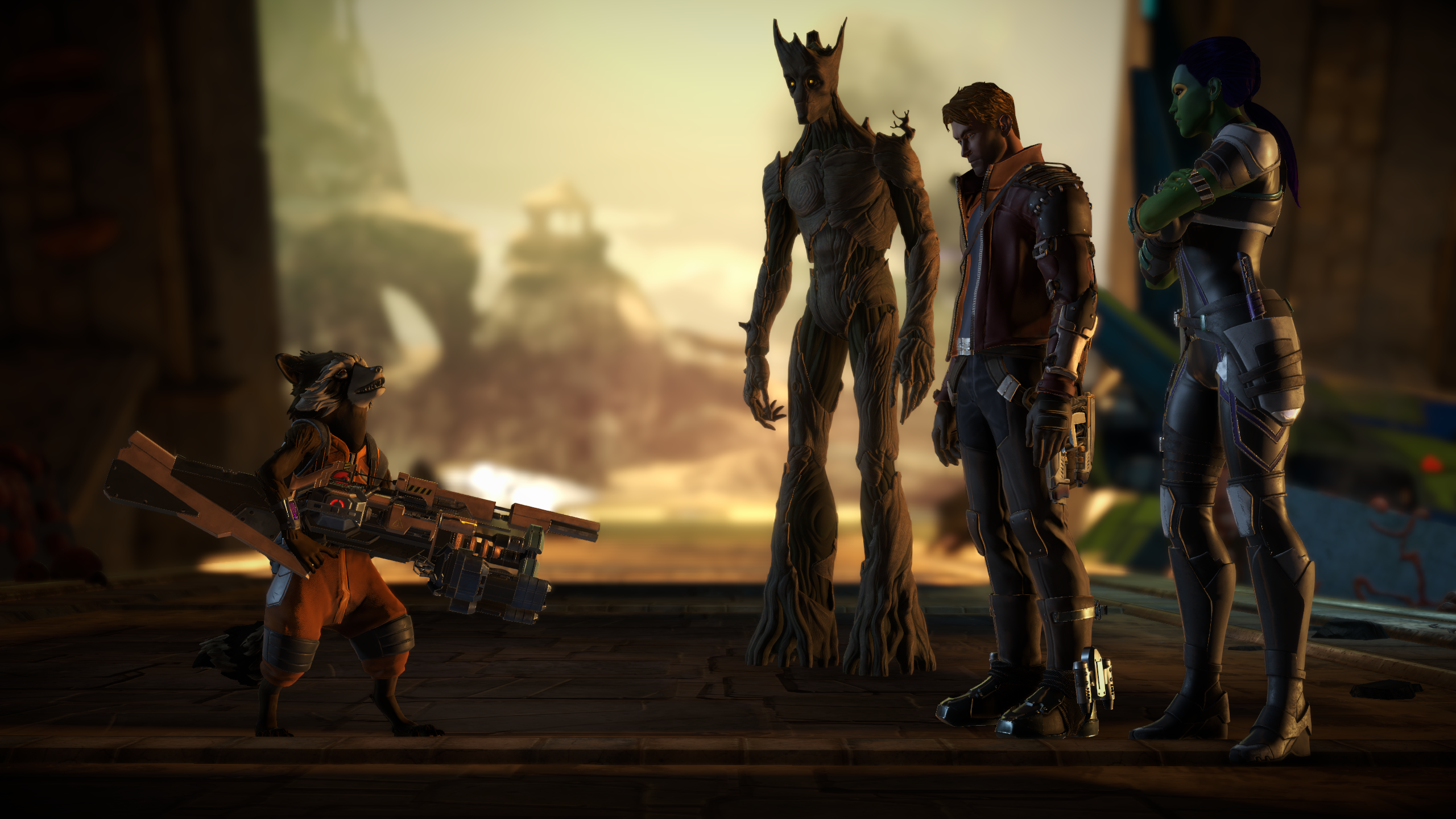Our Verdict
Guardians of the Galaxy's story may eventually get someplace interesting, but it's a poor fit for Telltale's simple quick time events and stiff dialogue sequences.
PC Gamer's got your back
What is it? A narrative adventure game about comic book weirdos in space.
Reviewed on GTX 980, i7-7700K CPU, 16GB RAM
Price $25/£19
Developer Telltale Games
Publisher Telltale Games
Multiplayer No
Link Official site
Buy Humble Store
Read our affiliates policy
When I watched 2014's Guardians of the Galaxy, I remember wishing the film had squeezed in a little more time for the crew to just hang out together and banter. Crack jokes. Just slow things down, for a minute, and let snappy dialogue and charming acting carry a scene. Telltale's Guardians of the Galaxy adaptation tries to make a game out of that very dynamic, but the dialogue is never as snappy and the acting is never as charming. As I listened to moody assassin Gamora and sarcastic tinkerer Rocket Raccoon bicker about what I should do, I didn't care much about what either of them had to say. I just wanted them to be funny, and funny was in short supply.
Telltale's Guardians of the Galaxy owes a lot to the film interpretations of Star-Lord, Gamora, Rocket Raccoon, Groot, and Drax, but it tells a story disconnected from the Marvel Cinematic Universe, which has been building up to a grand, Infinity War showdown with big bad purple man Thanos. Here the Guardians tango with Thanos almost immediately—and by 'tango' I mean 'fight in a drearily rote quick time event battle that mostly plays itself even when you don't press the buttons it asks you to.'
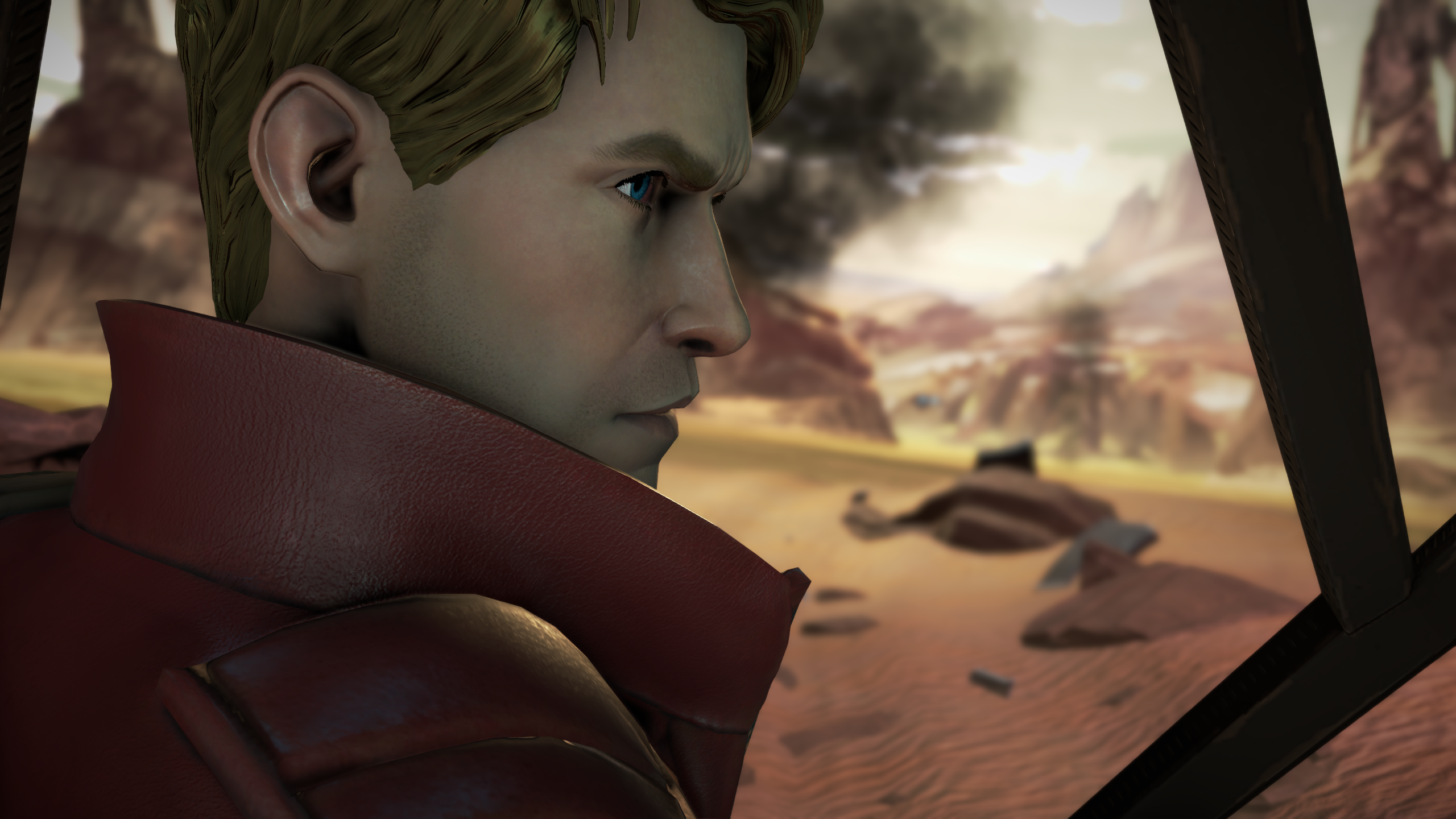
Rather than build an interesting narrative-focused game around this cast of characters, Telltale has jammed that cast into a mold growing brittle from overuse.
Telltale hasn't significantly evolved the interactivity or presentation of its action scenes since The Walking Dead, and that's one of the disappointments of this rendition of Guardians of the Galaxy. Rather than build an interesting narrative-focused game around this cast of characters, Telltale has jammed that cast into a mold growing brittle from overuse.
Guardians links together a couple scenes of paper thin puzzle solving, a couple scenes of unexciting quick time event action, and a lot of dialogue that doesn't seem to matter much. As Star-Lord, I mostly got to choose between different types of jokes (chuckle-worthy at best), quell bickering between Gamora and Rocket, or prod characters for a little personal history. The only significant choice in this first episode, 'Tangled Up in Blue,' will clearly have ramifications down the line, but nothing else inspired much passion or curiosity from me. In many situations where it gave me the option, I chose to say nothing, and Guardians of the Galaxy seemed to carry on just fine, as indifferent to me as I was to it.

The story Guardians sets out to tell actually surprised me—it's an unusually bold bait-and-switch for a Marvel adaptation, which quickly shifts the focus from Thanos to the relationship between the crew and what's keeping them together. I admire the idea, but it ultimately feels like a poor fit for a group of goofy superhero comic characters who have nothing interesting or revelatory to say. These are not vulnerable, intimately human characters with mysterious backstories to uncover. They're colorful vehicles for punching bad guys in the most ridiculous ways possible and saying funny things while they do it, and Telltale didn't design a game that plays to those strengths.
Instead, they treat them as they do characters in The Walking Dead and their other games, as though their motivations and backstories haven't already been well-tread in comics and on screen. Stellar writing or a dramatic new interpretation may have dug past this issue and made Telltale's 'so tell me what's on your mind' dialogue scenes work, but neither of those is present here. It's just going through the motions. The dialogue system's long pauses as you choose lines and the simple character animations keep the banter methodical and restrained instead of fast and punchy. It's not even visually creative in bringing an established comic universe into 3D, like The Wolf Among Us's neo noir take on the comic Fables.
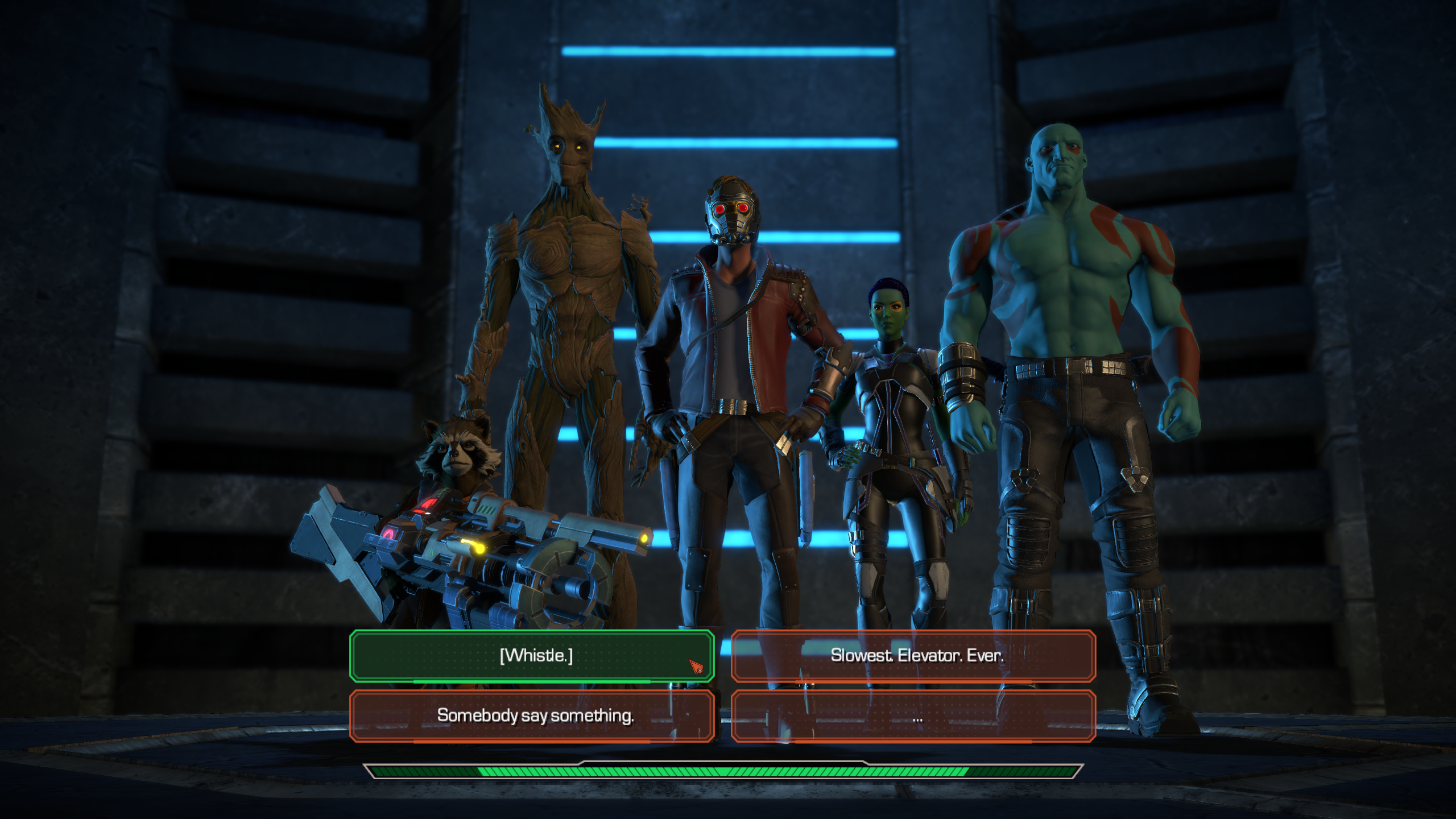
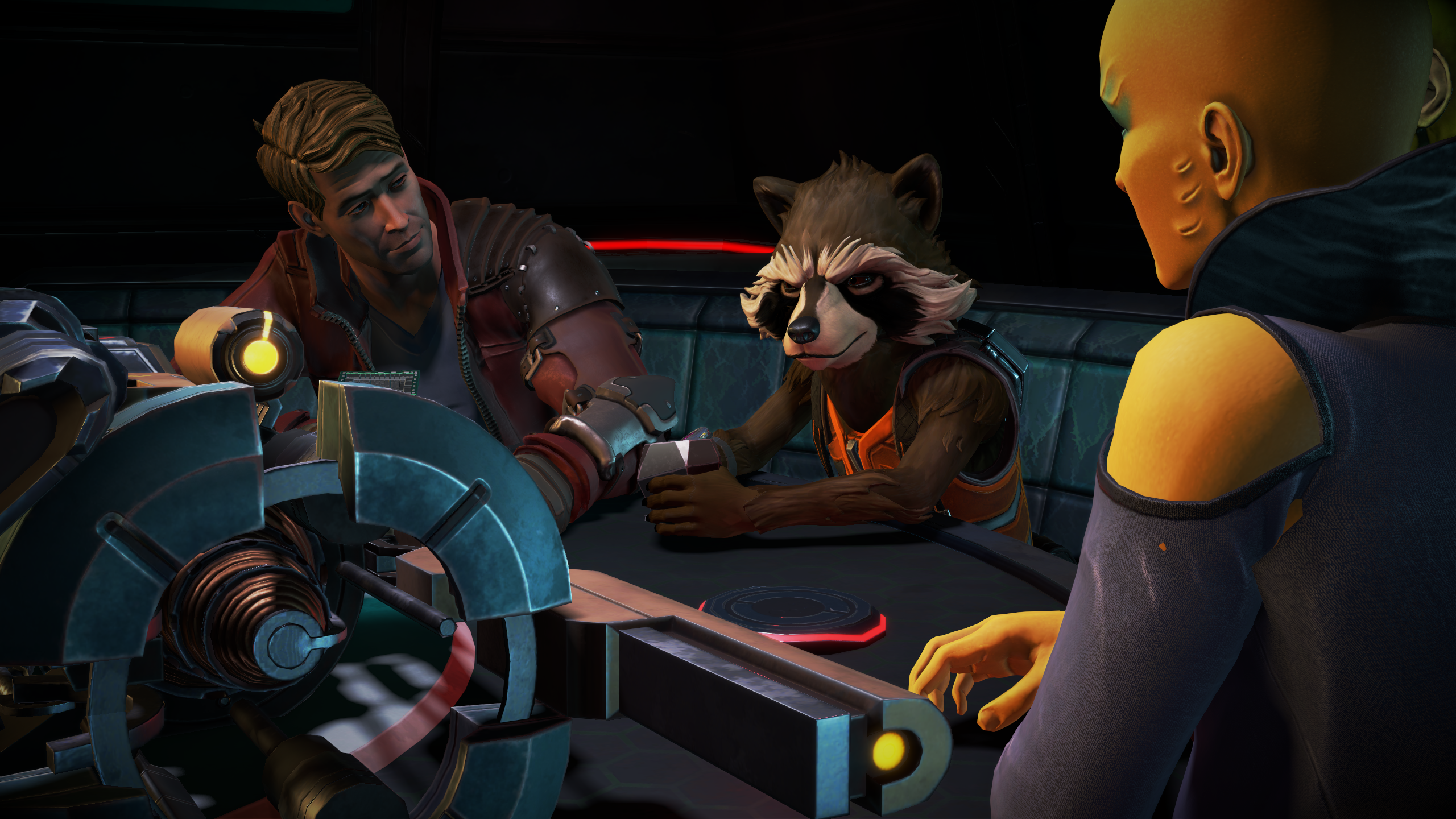
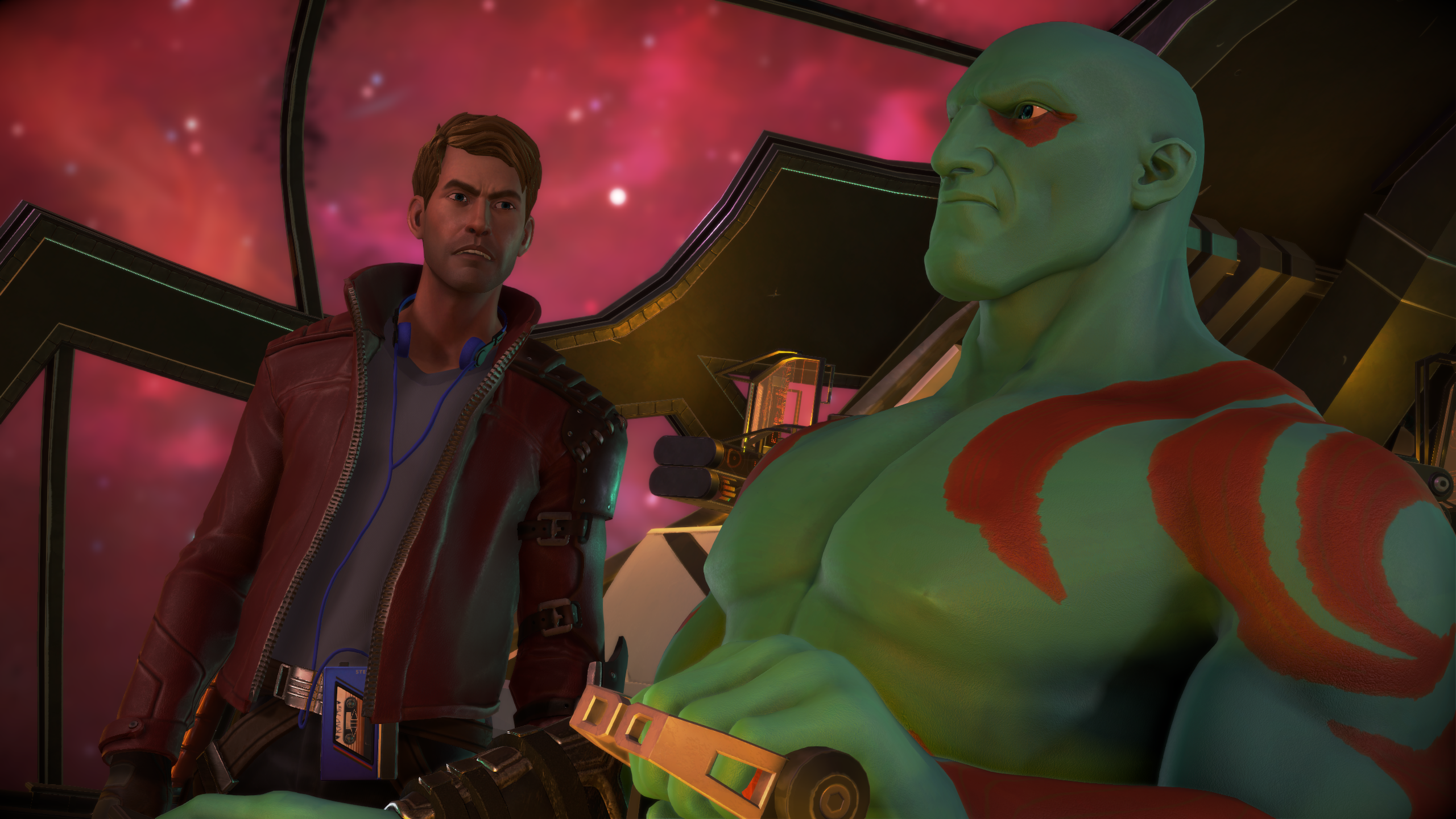

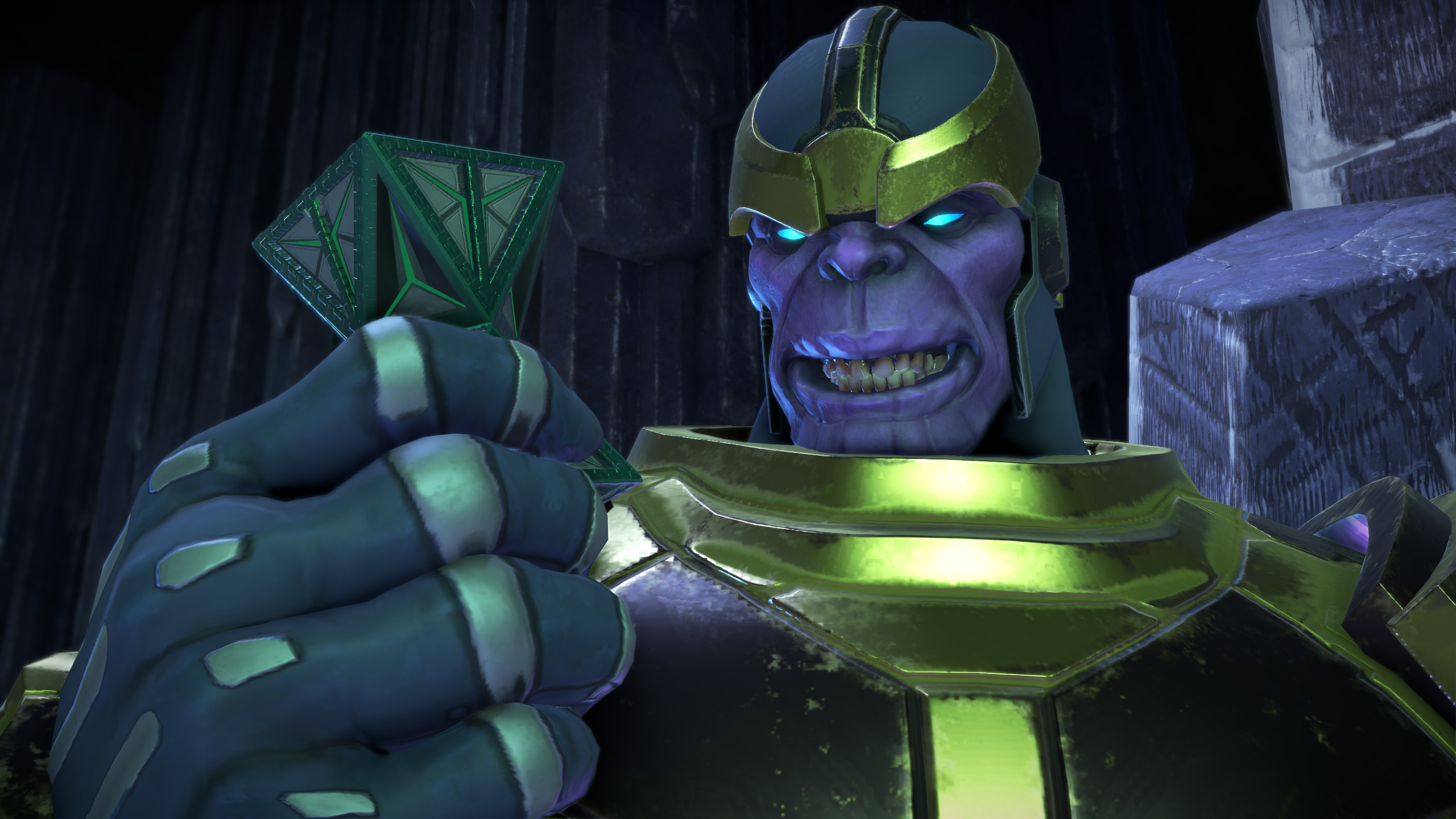
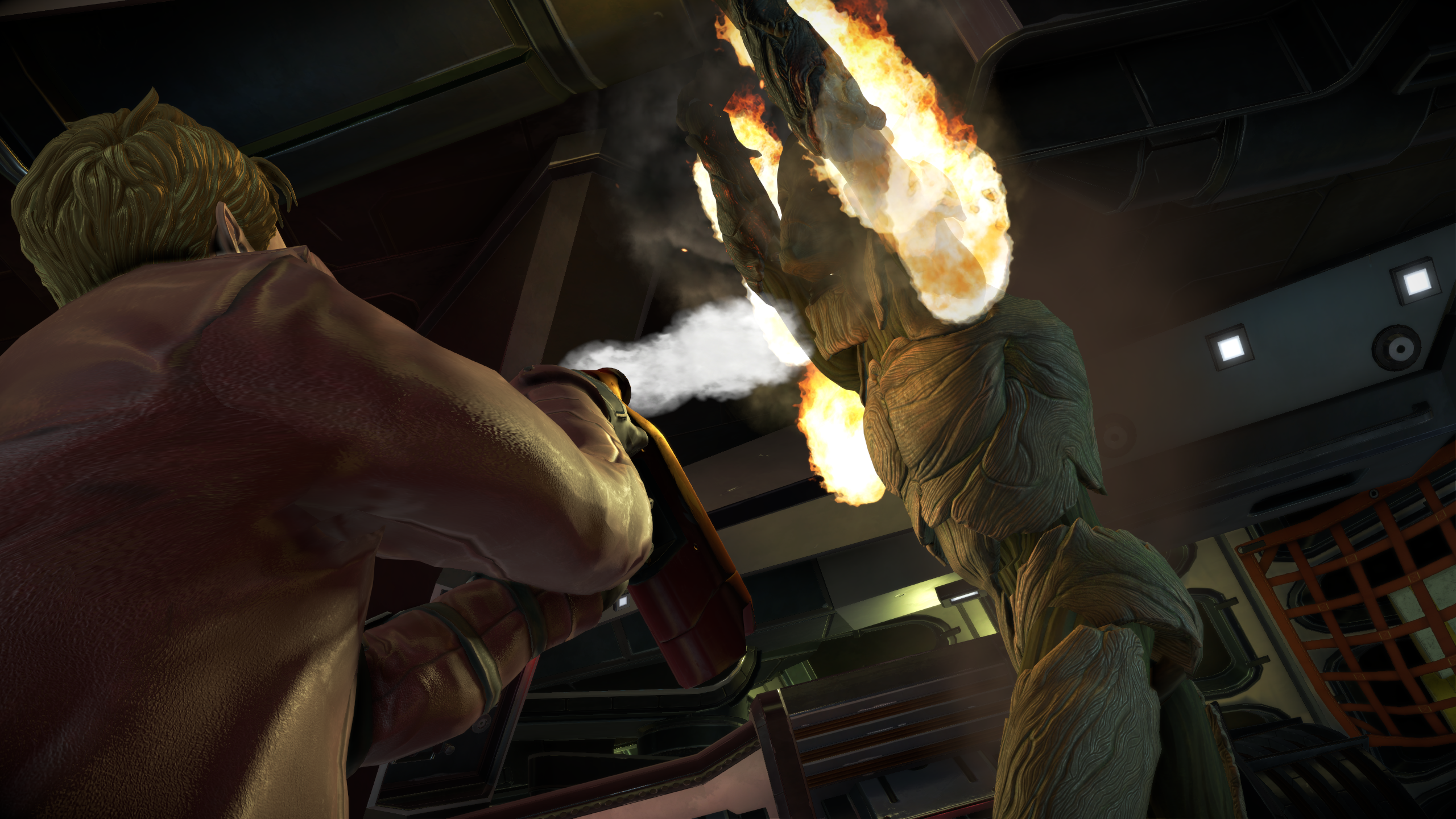
By the end of the first episode Guardians of the Galaxy sets up its overarching plot, which ties into the history of the Kree, with a new big bad and an infinity stone-esque McGuffin. Some Marvel cosmic comic experts may be giddy to see the Kree get more love—and let's be honest, the film's villain Ronan the Accuser was pretty forgettable—so I hope the series finds strength in its story as it develops. As it stands, Tangled Up in Blue is a meandering introduction to a cast I already know, leaning on a framework that doesn't play to their strengths. In about an hour and a half, Guardians of the Galaxy tops out at 'heh.'
Guardians of the Galaxy's story may eventually get someplace interesting, but it's a poor fit for Telltale's simple quick time events and stiff dialogue sequences.

Wes has been covering games and hardware for more than 10 years, first at tech sites like The Wirecutter and Tested before joining the PC Gamer team in 2014. Wes plays a little bit of everything, but he'll always jump at the chance to cover emulation and Japanese games.
When he's not obsessively optimizing and re-optimizing a tangle of conveyor belts in Satisfactory (it's really becoming a problem), he's probably playing a 20-year-old Final Fantasy or some opaque ASCII roguelike. With a focus on writing and editing features, he seeks out personal stories and in-depth histories from the corners of PC gaming and its niche communities. 50% pizza by volume (deep dish, to be specific).
